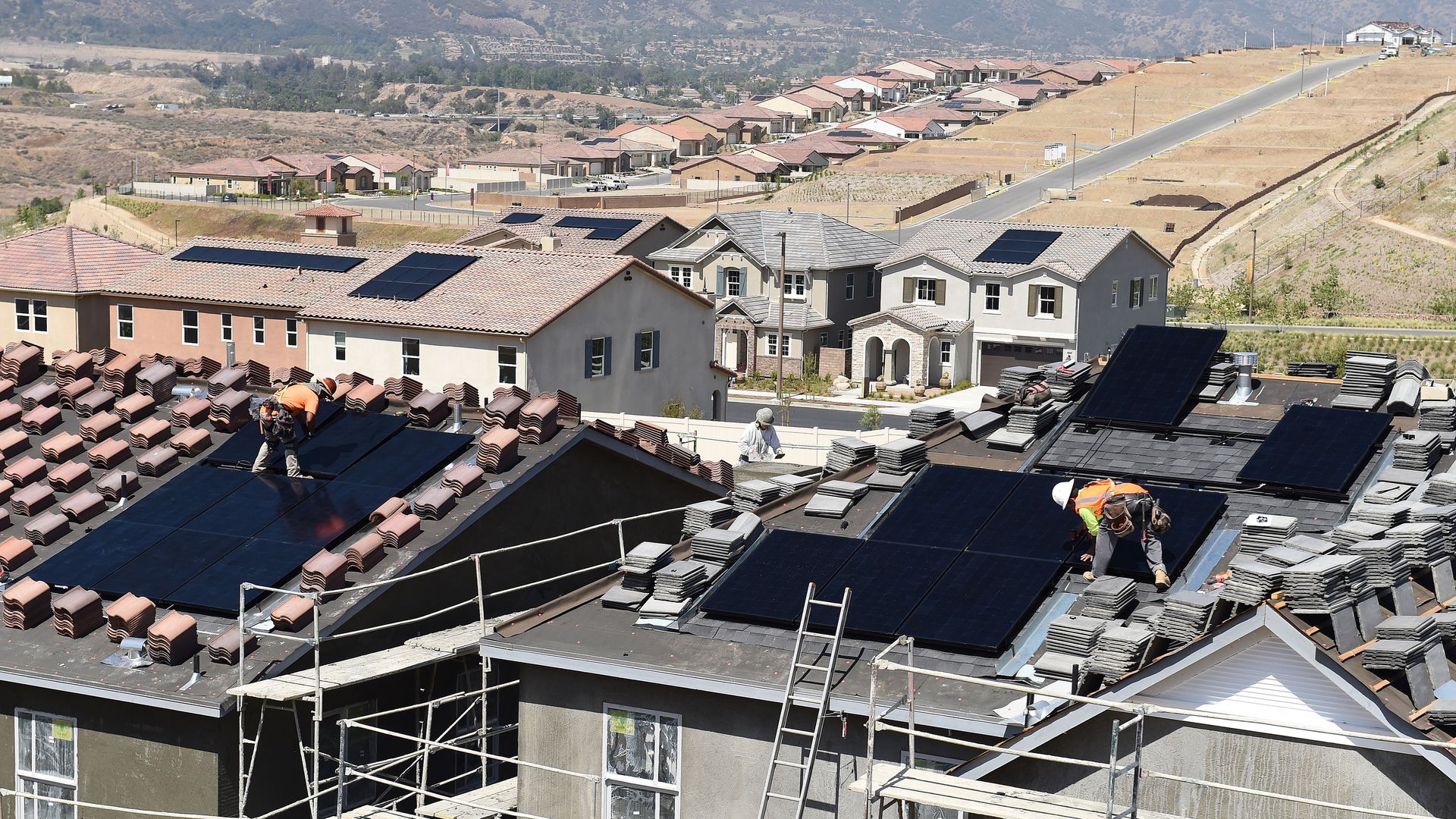Updated May 21, 2018 - Energy & Climate
Expert VoicesHow California's residential solar mandate could misfire
Add Axios as your preferred source to
see more of our stories on Google.

Workers install solar panels on homes in Corona, California. Photo: Will Lester/Inland Valley Daily Bulletin via Getty Images
